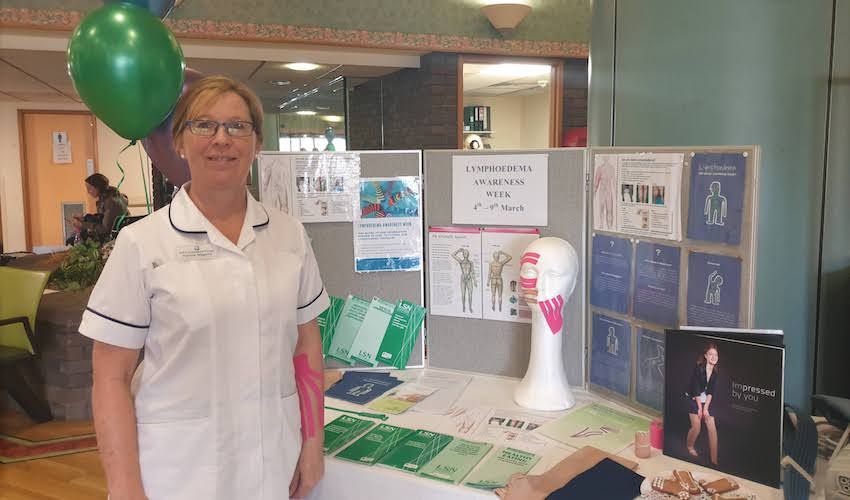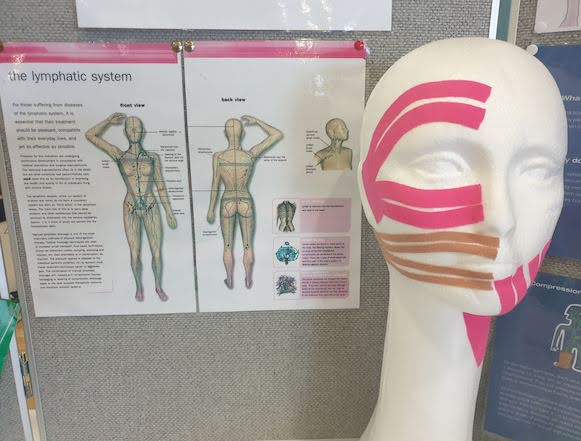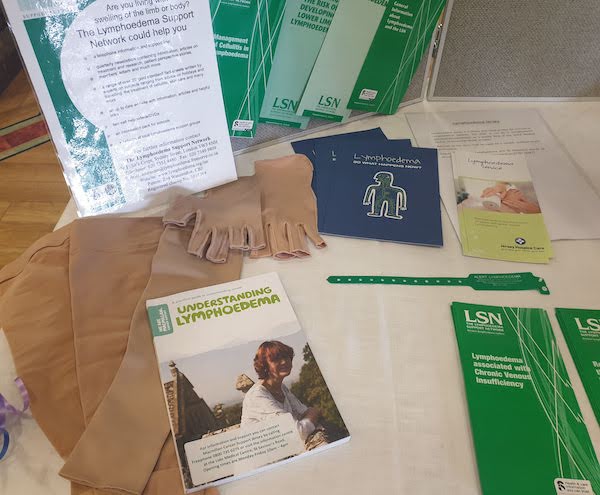

A local nurse has been driving efforts to raise awareness among patients and health professionals of a "little recognised" condition affecting around 200 islanders that causes parts of the body to swell up.
Yvonne Maguire has been treating patients affected by lymphoedema, a chronic condition that causes parts of the body to swell, at Jersey Hospice Care for over 10 years - and this week is making a special push to teach more people about the condition as part of Lyphoedema Awareness Week.
She explained that when she started her training, while working in the Palliative Care Unit, there was no service for patients affected by lymphoedema. “A lot of patients would come in the Day Centre Service, there was nothing available to them. One of my colleagues went away to train and started treating patients.
“I was working at the in-patient units and got an interest in it. It’s a fascinating area. There is always something to learn, the treatment changes and there is a lot of research being done.”
While the condition affects an estimated 240,000 patients in the UK - and just over 200 in the island - Mrs Maguire says it is still a “little recognised condition”. “It’s a failure of the lymphatic system, that’s what differentiates it from other types of swelling,” she explained. “There are different causes. It can be genetic, you can be born with it or it can develop later in life.
“It can also develop after repeated infections in the legs for example, because infections damage the lymphatic system. Patients that have cancer can also develop it, and those are the type of patients we care for at the hospice clinic.”
Symptoms include swelling, discomfort and tightness of the tissues. While lymphoedema is more common in the legs and arms, sometimes affecting walking or movement, it can affect any part of the body, including the face and the neck. “It can happen anywhere where the lymphatic system has been affected causing an interruption of drainage,” Mrs Maguire explained.

Pictured: Lymphoedema usually affects the legs and arms but can also happen in the face and neck.
While there is no cure for the chronic condition, Mrs Maguire says there are many ways to manage the symptoms - a message she is keen to transmit to patients and doctors alike. This include skin care treatment to prevent infections, compression with the help of garments and bandages, exercise to get the muscles working and activate drainage as well as “manual drainage".
“We lightly pull the tissue to encourage drainage to the next set of working lymph nodes,” Mrs Maguire explained, adding that while therapists usually do the manipulation, it’s easily taught to patients.
“The whole focus of the treatment is to assist and teach the patients to manage the symptoms,” she explained.

Pictured: While lymphoedema can't be cured, there are many ways to manage the symptoms.
As part of Lymphoedema Awareness Week, Mrs Maguire spent a morning in the hospital foyer to speak to patients about the possible treatments and signpost them to the services available, with local charities or in private clinics as there is no lymphoedema service at the hospital.
She was also keen on raising awareness among health professionals. “We are doing better at recognising the condition, but we still need to raise awareness so that all health professionals can recognise it. Every other causes have to be ruled out before you can diagnose lymphoedema so it’s important to raise awareness.”
Today, she'd like to see as many people as possible wearing odd socks to further raise awareness, as part of the 'Let's sock it to Lymphoedema!' initiative.
Comments
Comments on this story express the views of the commentator only, not Bailiwick Publishing. We are unable to guarantee the accuracy of any of those comments.